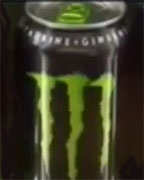- 8 Ways to Increase Dopamine Naturally
- 7 Best Breads for Maintaining Stable Blood Sugar
- Gelatin vs. Collagen: Which is Best for Skin, Nails, and Joints?
- The Long-Term Effects of Daily Turmeric Supplements on Liver Health
- Could Your Grocery Store Meat Be Causing Recurring UTIs?
- Are You Making This Expensive Thermostat Error This Winter?
- Recognizing the Signs of Hypothyroidism
- 10 Strategies to Overcome Insomnia
- Could Artificial Sweeteners Be Aging the Brain Faster?
- Techniques for Soothing Your Nervous System
Teens’ Energy Drink Habit May Be Linked to Booze, Tobacco, Drug Use


Teens who drink high-caffeine energy beverages such as Red Bull or Monster may be more likely to use alcohol, drugs and cigarettes, a new study suggests.
The findings suggest that the same personality traits that attract kids to energy drinks — such as being a risk taker — may increase the chances that they’ll use addictive substances, the study authors said.
For the study, published in the January/February issue of the Journal of Addiction Medicine, the researchers analyzed data from nearly 22,000 students in grades 8, 10 and 12. The investigators found that about 30 percent said they consumed caffeine-laced energy drinks or shots, more than 40 percent drank regular soft drinks each day and 20 percent drank diet soft drinks daily.
Boys were more likely than girls to consume energy drinks. Use of the beverages was also higher among teens without two parents at home and those whose parents had lower levels of education. The researchers were also surprised to find that 8th graders were more likely to use energy drinks than 10th or 12th graders.
Students who consumed energy drinks were two to three times more likely to say they’d recently used alcohol, cigarettes and drugs than those who didn’t consume energy drinks, the study authors said. While soft drink consumption was also linked to use of these substances, the association was much stronger for energy drinks.
“The current study indicates that adolescent consumption of energy drinks/shots is widespread and that energy drink users also report heightened risk for substance use,” wrote Yvonne Terry-McElrath and colleagues at the University of Michigan’s Institute for Social Research.
The findings do not prove that consumption of energy drinks leads to substance use, the researchers stressed in a journal news release. However, they concluded that awareness programs “for parents and prevention efforts among adolescents should include education on the masking effects of caffeine in energy drinks on alcohol- and other substance-related impairments.”
They also urged wider recognition that “some groups [such as high sensation-seeking youth] may be particularly likely to consume energy drinks and to be substance users.”
More information
The American Academy of Pediatrics has more about energy and sports drinks.
Source: HealthDay
Copyright © 2026 HealthDay. All rights reserved.










